
Station to Station Matisse's Chapel in Vence Architectural Review
WEBSITE: CHAPELLEMATISSE.FR. LOCATION: 466 AVENUE HENRI MATISSE, 06140 VENCE, FRANCE. NEAREST AIRPORTS: NICE CÔTE D'AZUR AIRPORT AND A 1 HOUR DRIVE. Walk into a Matisse masterpiece by visiting the 'Matisse Chapel', or The Chapelle du Rosaire de Vence, in the Cote D'Azur. A 15 minutes' walk from Vence, a medieval walled village with.
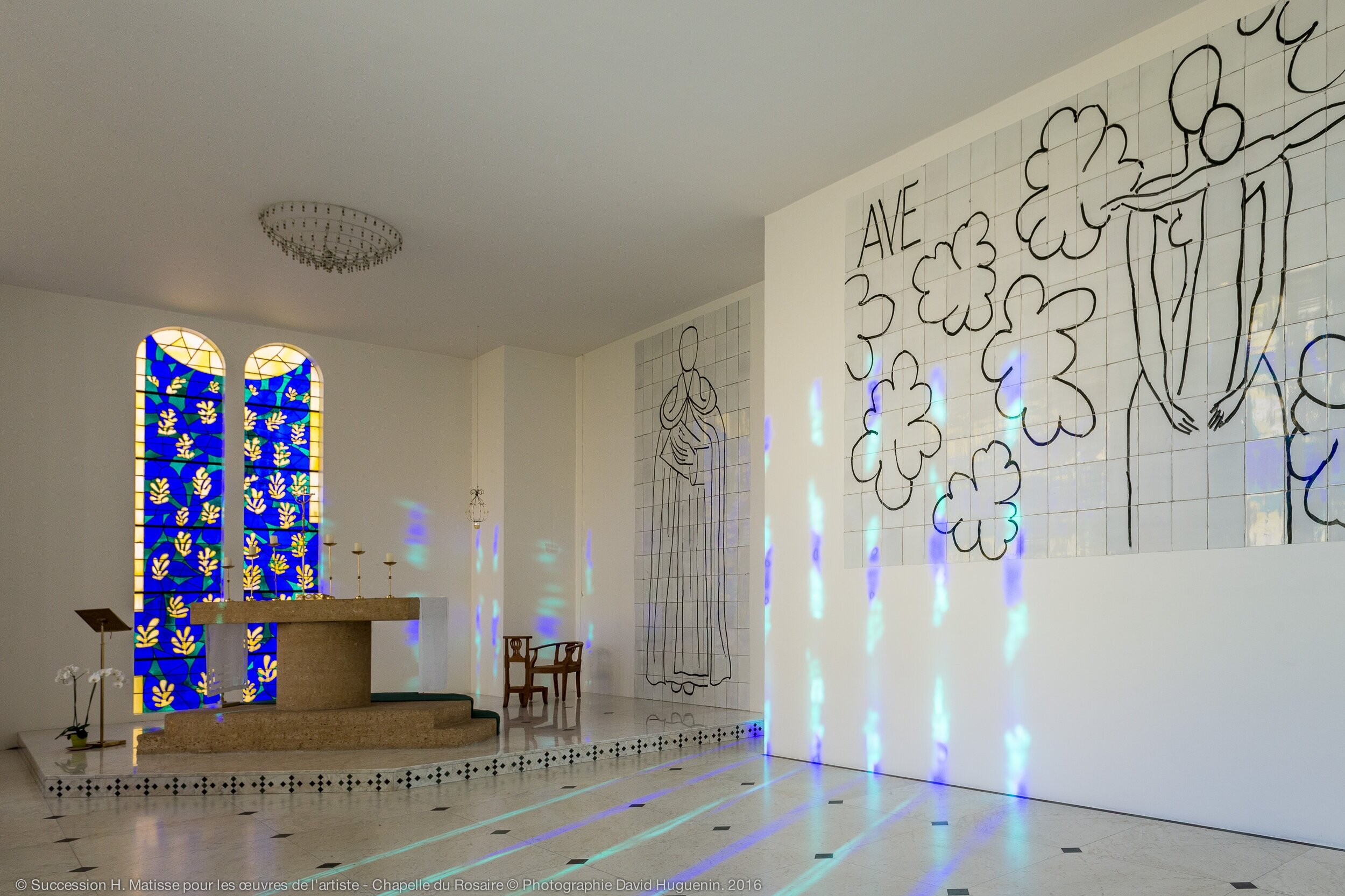
Matisse Chapel in Vence — The Art Pilgrim
Here is the story behind the Chapelle du Rosaire de Vence, France (Chapel of the Rosary). Note: this chapel is also referred to as the Matisse Chapel or the.

matisse vence france Matisse, Henri matisse, Sacred places
About the Matisse Chapel: The formal name for this Chapel is the Rosary Chapel, although it is often referred to as the Matisse Chapel since it was designed by the famous artist Henri Matisse.In 1948, at the age of 77, Matisse began to prepare designs for the Chapelle du Rosaire de Vence, having lived in the town since the German occupation of World War II.
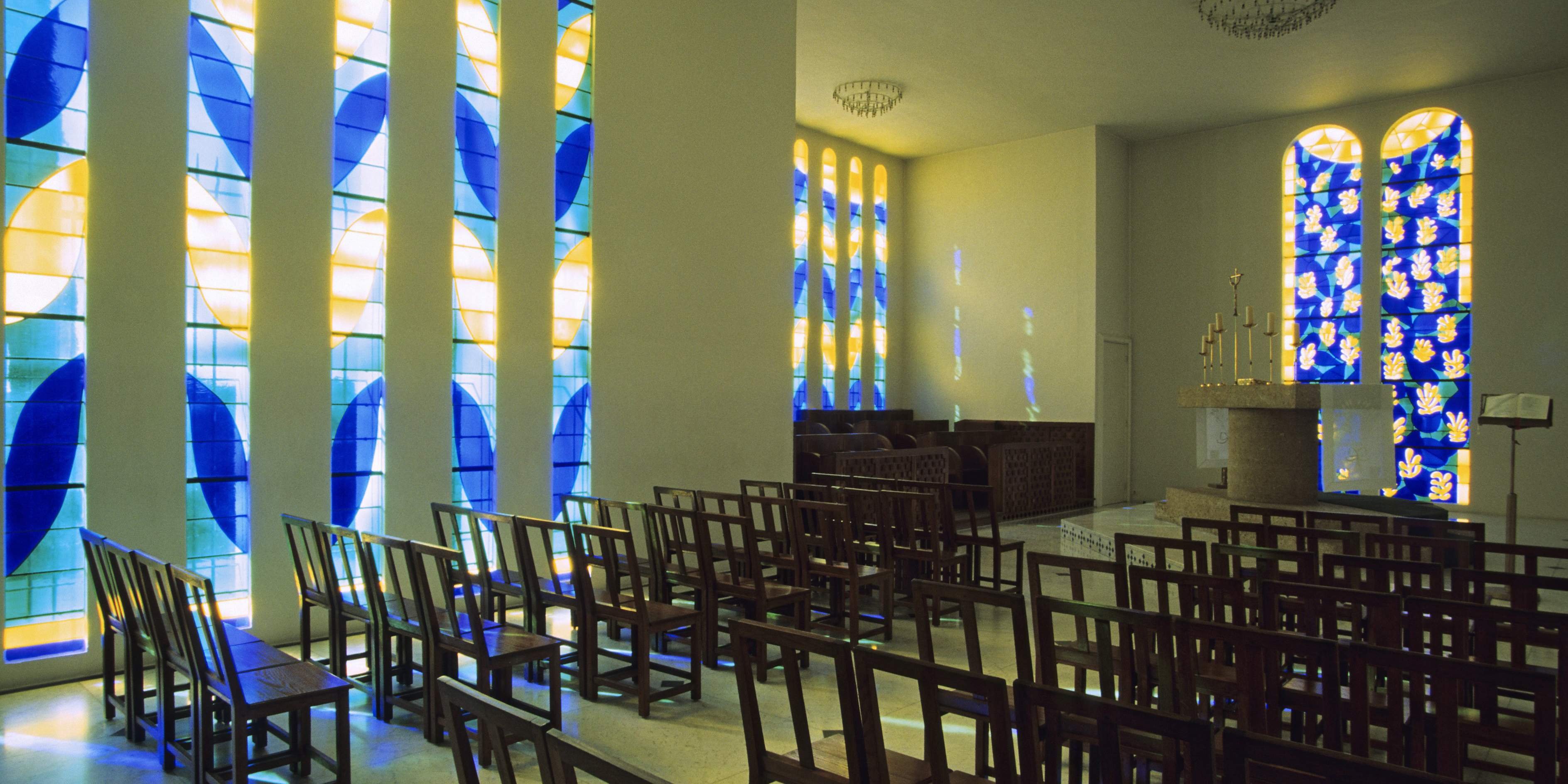
Découvrir la splendide chapelle Matisse à Vence
GLENN LOWRY: In December 1947, Matisse agreed to design a chapel in the town of Vence in the South of France.The project gave him a chance to work holistically by creating a full-scale environment. He devoted four years to the endeavor, transforming his studio into a kind of chapel, and living amongst the cut-out maquettes and preparatory drawings.

Matisse Chapel in Vence — The Art Pilgrim
The Magical Matisse Chapel in Vence. The Chapelle du Rosaire is often referred to as the Matisse Chapel. It is a small chapel built and decorated between 1949 and 1951 for Dominican nuns in the town of Vence on the French Riviera. The chapel was built and decorated by the artist, Henri Matisse. This small Chapel houses a few Matisse originals.
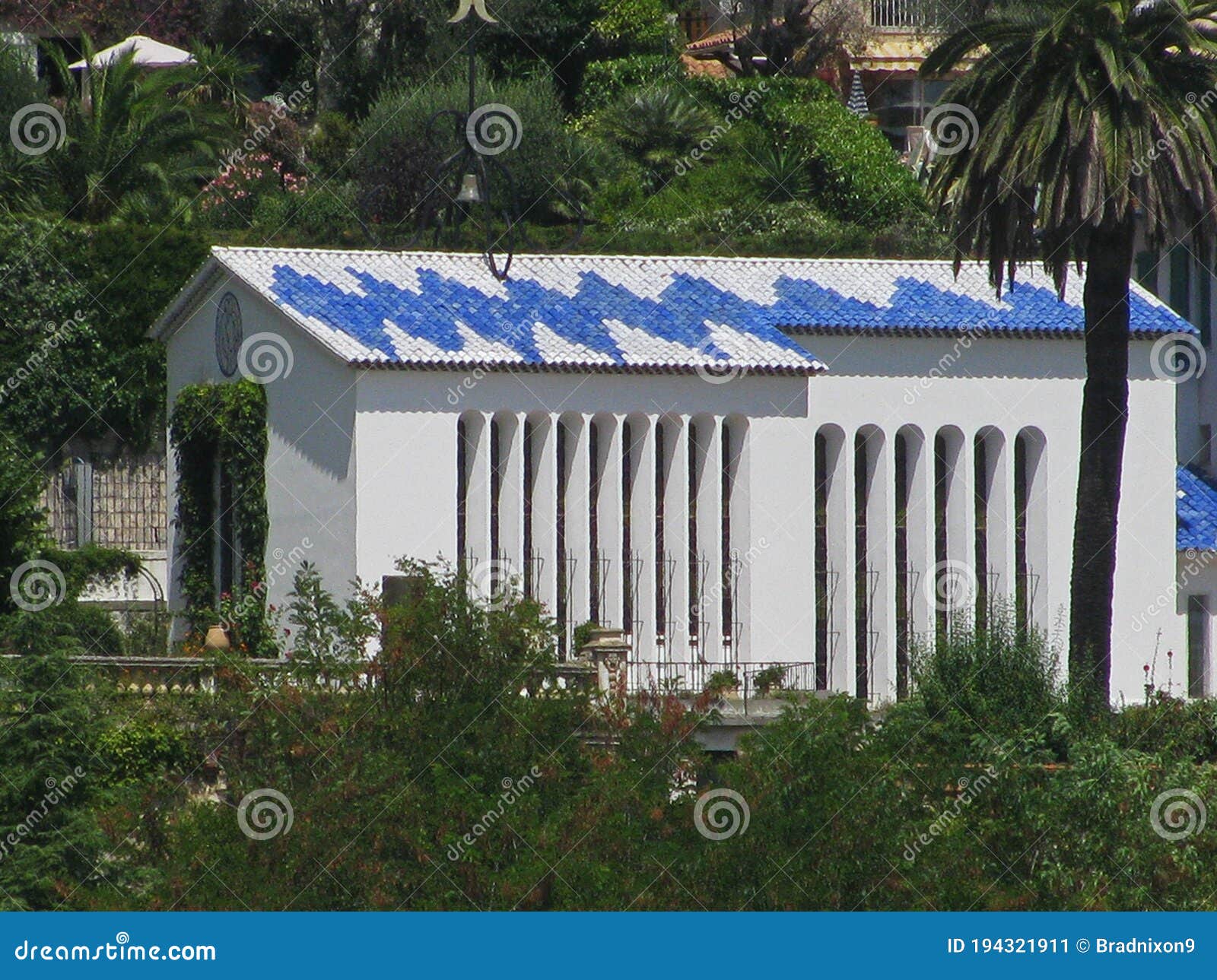
Chapel of the Rosary, in Vence, Provence, France, Designed by Henri Matisse, Built in 1951
From the years 1948 to 1951, legendary French artist Henri Matisse worked tirelessly on plans for the Chapelle du Rosaire de Vence, (the Chapel of the Rosary), designing every element if the building, from the exterior to the details of decoration.A culmination of his long artistic trajectory, it was the first time that a painter had entirely designed every detail of a Chapel in such a.
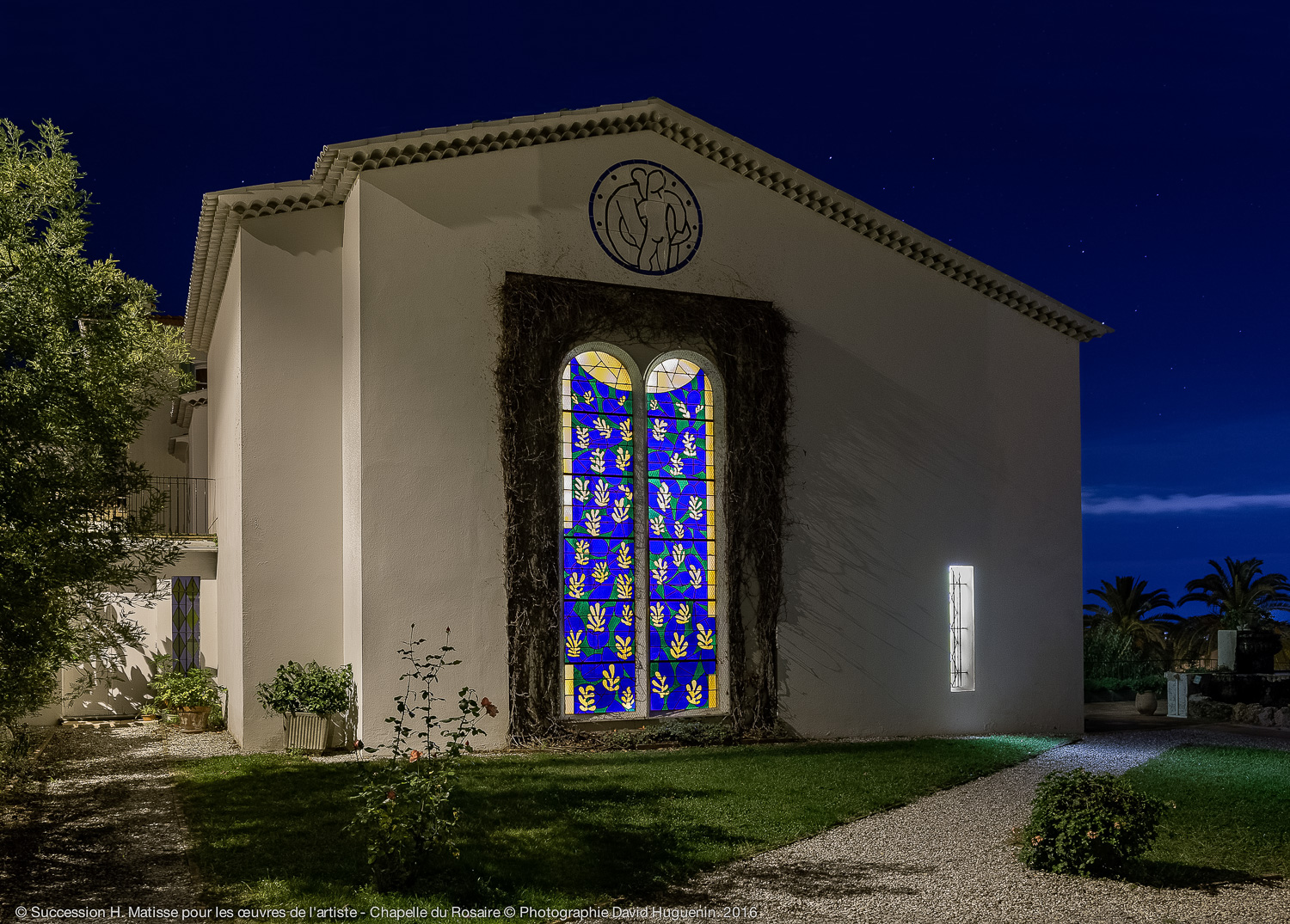
Chapelle du Rosaire, Vence Henri Matisse. 2016 David Huguenin
La Chapelle Matisse est située sur le site exceptionnel de Vence près de Nice, au centre d'une région riche en hauts lieux artistiques et spirituels. La Chapelle du Rosaire (dite chapelle Matisse) a été réalisée par Henri Matisse pour les sœurs dominicaines . Celles-ci sont heureuses de vous accueillir dans la chapelle et dans l'espace.
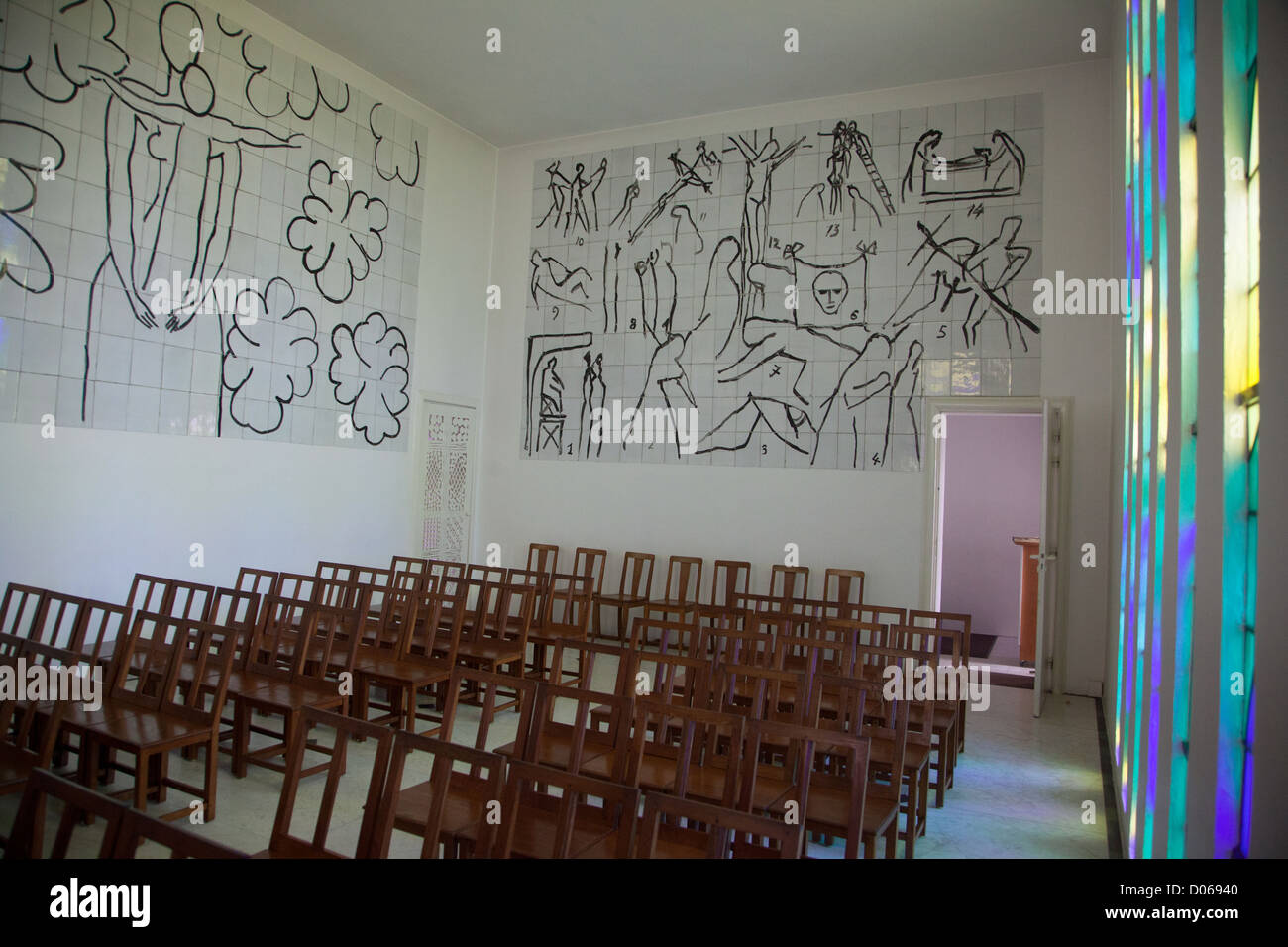
THE ROSAIRE CHAPEL ENTIRELY DECORATED BY HENRI MATISSE BETWEEN 1949 AND 1951 VENCE ALPES
In 1943 the two were reunited in the town of Vence (not Venice), where Matisse had moved, and Monique, now Sister Marie-Jacques, was recovering from tuberculosis. An intrigued Matisse rekindled their friendship, and upon discovering the community was using a leaky garage as their chapel, he took matters in hand.
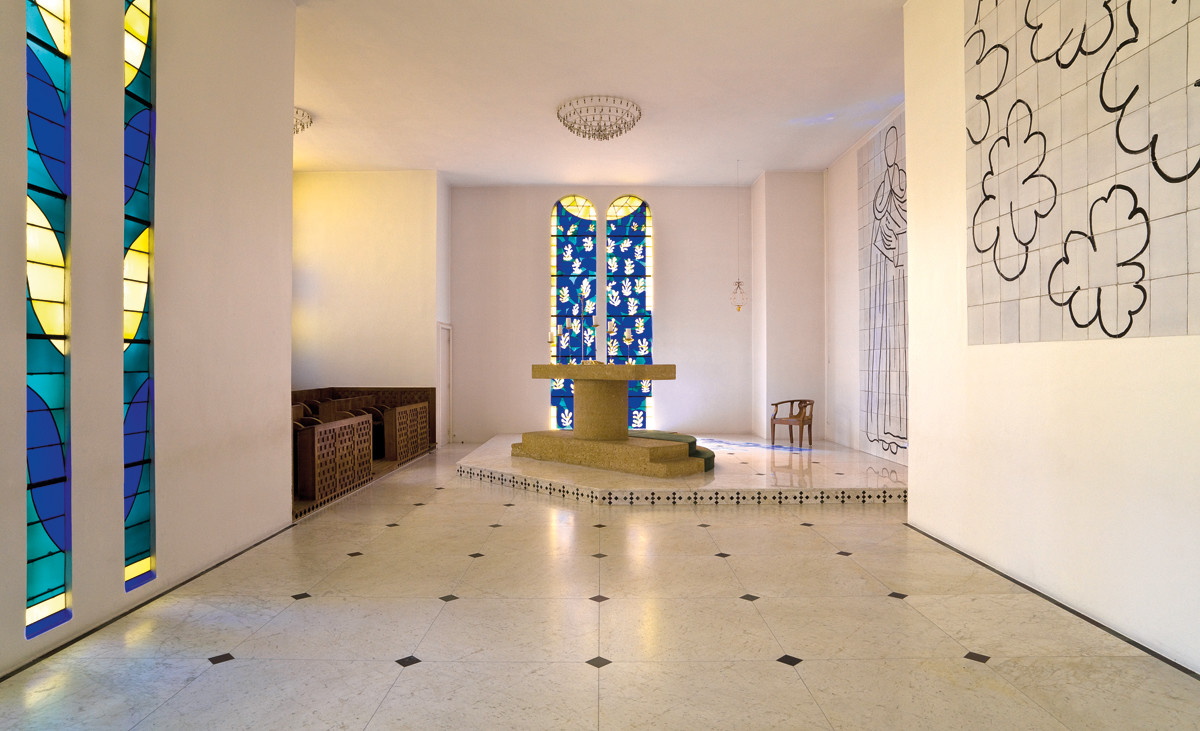
An extract from 'Matisse The Chapel at Vence' Blog Royal Academy of Arts
Matisse and the Chapel of Vence. Despite never having done a project like this, Matisse, age seventy-seven, threw himself into it with gusto. He designed every detail: stained-glass windows, flooring, wall decoration, lighting, even the priest's robes. The Chapelle du Rosaire opened in 1951. When the press got wind that the chapel was a joint.

Matisse’s Masterpiece Vence’s Chapelle Du Rosaire
Abstract. Although Henri Matisse's Rosary Chapel in Vence, France was completed when the artist was 82 years old, it was the first piece the painter referred to as his "masterpiece.". Despite its prestige within Matisse's extensive body of work, the chapel is only framed by the art historical community in two ways: as a result of the.

Chapel of the Rosary, Vence Matisse Stained glass, Glass art, Matisse
Henri Matisse's Rosary Chapel in Vence, France garnered international attention when it was consecrated in 1951. The level of attention was so great that one editorial from the Liturgical Arts journal published in New York City claimed: "It is doubtful that anyone even remotely interested in religious art can have escaped the barrage of.

Matisse's Chapel, Vence, France Matisse designed this chap… Flickr
Introduction: The Chapel of the Rosary, Vence. Matisse compared the Chapel of the Rosary in Vence to a book whose pages are to be inscribed using brushes and black Indian ink on white ceramic tiles, enhanced by the colour of the stained-glass windows. Beginning in 1932 with an edition of the poems of Mallarmé, Matisse illustrated a number of.
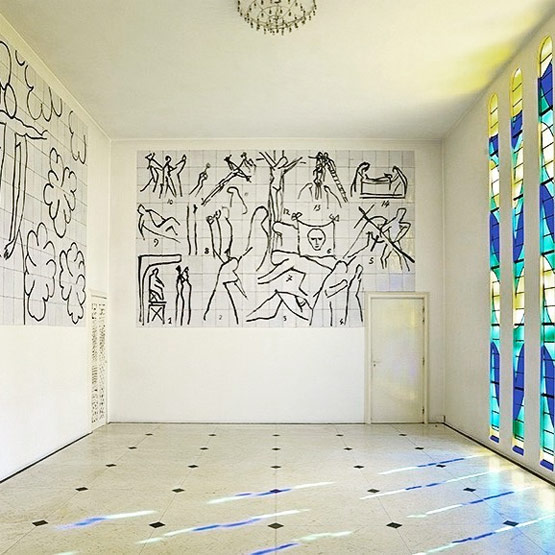
The Matisse Chapel in Vence Inspires Hope… and a New Play France Today
The Chapelle du Rosaire de Vence (Chapel of the Rosary), often referred to as the Matisse Chapel or the Vence Chapel.Matisse compared the Chapel of the Rosar.

Henri Matisse in the chapel he created in Vence. *There is a movie on this process, called "A
Matisse's interpretation of the 14 stations is abbreviated and tumultuous, with each of the images' black angular forms jostling against one another. The new book on the Vence chapel, dedicated to Vence's Dominican nuns, includes a wealth of sketches and models.

Chapelle du Rosare de Vence (Henri Matisse) Henri matisse, Beautiful places, Beautiful
Interestingly, Henri-Émile-Benoît Matisse (31st December 1869-3rd November 1954) was for most of his life an atheist but the project of constructing and designing the chapel in its entirety would bring out a deeply spiritual aspect in his psyche and lead him to declare upon its inauguration in 1951 that La Chapelle du Rosaire de Vence was.

"Embodiment and Decoration Henri Matisse's Rosary Chapel in Vence, France" by Lauren Burgess
The Chapelle du Rosaire de Vence (Chapel of the Rosary ), often referred to as the Matisse Chapel or the Vence Chapel, is a small Catholic chapel located in the town of Vence on the French Riviera. It was dedicated to the Dominican Order. [1] The church was built and decorated between 1947 and 1951 under a plan devised by artist Henri Matisse. [2]